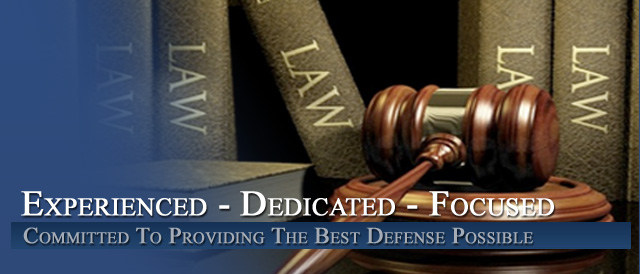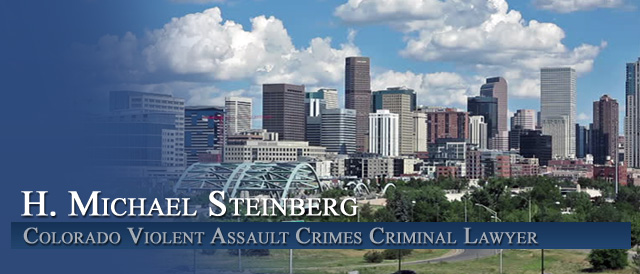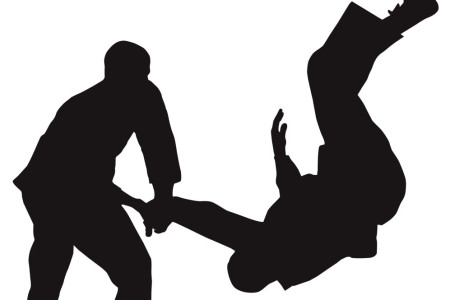





Understanding Colorado Law – If You Start A Fight – You May Not Be Allowed To Claim Self Defense
By H. Michael Steinberg – Colorado Violence Crimes Criminal Defense Lawyer

___________________-Understanding Colorado Law – If You Start A Fight You May Not Be Allowed To Claim Self Defense
Understanding Colorado Law – If You Start A Fight – You May Not Be Allowed To Claim Self Defense – Under Colorado criminal law, a claim of self defense may be denied to you at trial if you were the initial aggressor in an altercation or you provoked that altercation.
This article addresses and explains these exceptions to a successful claim of self defense under Colorado criminal law. A previous article looked at the “mutual combat” exception to a successful claim of self defense.
As in any analysis of a Colorado criminal case – start with the law – one should always start with the statute – in this case the law creating the right to self defense in Colorado – 18-1-704 Use of Physical Force in Defense of a Person:
18-1-704 Use of Physical Force in Defense of a Person
(1) Except as provided in subsections (2) and (3) of this section, a person is justified in using physical force upon another person in order to defend himself or a third person from what he reasonably believes to be the use or imminent use of unlawful physical force by that other person, and he may use a degree of force which he reasonably believes to be necessary for that purpose.
(2) Deadly physical force may be used only if a person reasonably believes a lesser degree of force is inadequate and:
(a) The actor has reasonable ground to believe, and does believe, that he or another person is in imminent danger of being killed or of receiving great bodily injury; or
(b) The other person is using or reasonably appears about to use physical force against an occupant of a dwelling or business establishment while committing or attempting to commit burglary as defined in sections 18-4-202 to 18-4-204 ; or
(c) The other person is committing or reasonably appears about to commit kidnapping as defined in section 18-3-301 or 18-3-302, robbery as defined in section 18-4-301 or 18-4-302, sexual assault as set forth in section 18-3-402, or in section 18-3-403 as it existed prior to July 1, 2000, or assault as defined in sections 18-3-202 and 18-3-203.
(3) Notwithstanding the provisions of subsection (1) of this section, a person is not justified in using physical force if:
(a) With intent to cause bodily injury or death to another person, he provokes the use of unlawful physical force by that other person; or
(b) He is the initial aggressor; except that his use of physical force upon another person under the circumstances is justifiable if he withdraws from the encounter and effectively communicates to the other person his intent to do so, but the latter nevertheless continues or threatens the use of unlawful physical force; or
(c) The physical force involved is the product of a combat by agreement not specifically authorized by law.
(4) In a case in which the defendant is not entitled to a jury instruction regarding self-defense as an affirmative defense, the court shall allow the defendant to present evidence, when relevant, that he or she was acting in self-defense. If the defendant presents evidence of self-defense, the court shall instruct the jury with a self-defense law instruction. The court shall instruct the jury that it may consider the evidence of self-defense in determining whether the defendant acted recklessly, with extreme indifference, or in a criminally negligent manner. However, the self-defense law instruction shall not be an affirmative defense instruction and the prosecuting attorney shall not have the burden of disproving self-defense. This section shall not apply to strict liability crimes.
Colorado’s Initial Aggressor Law – Exception 1 To A Successful Claim Of Self Defense
To understand Colorado’s initial aggressor law – one must look at how the Colorado Courts of Appeal have interpreted the statute.
Here are some statements that will help you to understand how this works.
Initial Aggressor – A person is not justified in using physical force if:
He is the initial aggressor. The statute does not contain a definition of initial aggressor. As noted – Colorado case law fills the gap and defines the phrase as a person who:
Initiates the physical conflict by using or threatening the imminent use of unlawful physical force.
But a “pure” verbal confrontation alone is usually insufficient to make one an “initial aggressor.”
A person must initiate the physical conflict to be the initial aggressor and the evidence must support a reasonable inference that a Defendant initiated the physical conflict.
A Trial Court will instruct the jury about the initial aggressor exception to self-defense only when there is some credible evidence in the trial to support the instruction.
If the District Attorney meets this threshold level of evidence, the jury instruction permitting a jury to DENY the accused the right of self defense may occur which in turn can have a devastating impact on the right of Defendant to win his or her case on a self defense theory.
But a Trial Court should not, (and this would be an error of law), give the initial aggressor jury instruction where the prosecution has not first met their burden of establishing that a Defendant was the initial aggressor in the case.
Summary – Colorado’s Initial Aggressor Law
An “initial aggressor” uses or threatens the use of the imminent use of unlawful physical force against the defendant. But the classic initial verbal confrontation to an altercation is not insufficient to make a person “the initial aggressor – as insults alone do not make one the initial aggressor. Uttering insults or engaging in arguments does not justify an initial aggressor jury instruction at trial…. “[a] ‘victim’ faced with only words is not entitled to respond with force”
The Exception To The Exception – Withdrawing From The Encounter
IF an initial aggressor in an altercation uses physical force upon another person that force may be justifiable in some circumstances IF he withdraws from the encounter and effectively communicates to the other person his intent to do so, but the latter nevertheless continues or threatens the use of unlawful physical force.
But if a Defendant leaves an argument after making threats and then returns with a gun will support the initial aggressor jury instruction.
Colorado’s Law Regarding Provocation – Exception 2 – To A Successful Claim Of Self Defense Case
C.R.S. §18- 1-704(3)(a) provides:
…a person is not justified in using physical force if:…
(a) With intent to cause bodily injury or death to another person, he provokes the use of unlawful physical force by that other person”
Harkening back to the oldest source of law, “common law,” a Defendant cannot avail himself of the defense of self-defense if the necessity for such defense was brought about:
…by a deliberate act of the defendant acting with the purpose of provoking the victim into attacking.
Unlike the “initial aggressor” exception to a claim of self defense, the “provocation limitation” applies where the Defendant is NOT necessarily the initial aggressor, but rather this jury instruction applies where:
(1) self-defense is an issue in the case;
(2) the victim makes an initial attack on the defendant; and
(3) the defendant’s conduct or words were intended to cause the victim to make such attack and provide a pretext for injuring the victim.
The law here is much clearer. A defendant’s assertion of self-defense is lost if:
he or she acted with intent to provoke the victim into attacking first in order to provide the defendant with the excuse to injure or kill the victim.
The burden of proof on the District Attorney here is to establish that the Defendant intended to harm the victim and intended the provocation to goad the victim into attacking him or her as a pretext for injuring or killing the victim.
This issue arises ONLY when a Defendant is charged with an offense that requires an intent to cause bodily injury or death to the victim. This is NOT a situation where the alleged victim
says something of the order of:
“What are you going to do, shoot me?”
The Courts consider this to be a “passive comment” and not the kind of “provocation,” to justify a Defendant’s shooting a victim.
Understanding Colorado Law – If You Start A Fight – You Cannot Claim Self Defense
If you found any of the information I have provided on this web page article helpful please click my Plus+1 or the Share buttons for Twitter and Face book below so that others may also find it.
If, after reading this article, you have questions about your case and would like to consider retaining our law firm, we invite you to contact us at the Steinberg Colorado Criminal Defense Law Firm – 303-627-7777.
Never stop fighting – never stop believing in yourself and your right to due process of law.
ABOUT THE AUTHOR: H. Michael Steinberg – Email The Author at [email protected] – A Denver Colorado Criminal Defense Lawyer – or call his office at 303-627-7777 during business hours – or call his cell if you cannot wait and need his immediate assistance – 720-220-2277. Attorney H. Michael Steinberg is passionate about criminal defense. His extensive knowledge and experience of Colorado Criminal Law gives him the edge you need to properly handle your case.
“A good criminal defense lawyer is someone who devotes themselves to their client’s case from beginning to end, always realizing that this case is the most important thing in that client’s life.”
You should be careful to make a responsible choice in selecting a Colorado Criminal Defense Lawyer – and we encourage you to “vet” our firm. Over the last 30 plus years – by focusing ONLY on Colorado criminal law – H. Michael has had the necessary time to commit to the task of constantly updating himself on nearly every area of criminal law, to include Colorado criminal law and procedure and trial and courtroom practice. H. Michael works hard to get his clients the best possible results in and out of the courtroom. He has written, and continues to write, extensively on Colorado criminal law and he hopes this article helps you in some small way –Understanding Colorado Law – If You Start A Fight – You May Not Be Allowed To Claim Self Defense.

Other Articles of Interest:
- Understanding The Fight – Mutual Combat – And Colorado Self Defense Law
- Self Defense Law In Colorado 18-1-704 – Do I Have To Run? – The Duty To Retreat Issue
- Colorado Self Defense Law – When Innocent Third Parties Are Injured
- Understanding Self Defense And “Mutual Combat” Laws In Colorado
- Colorado Criminal Law – Using The Bill Of Particulars To Fight Your Criminal Case












